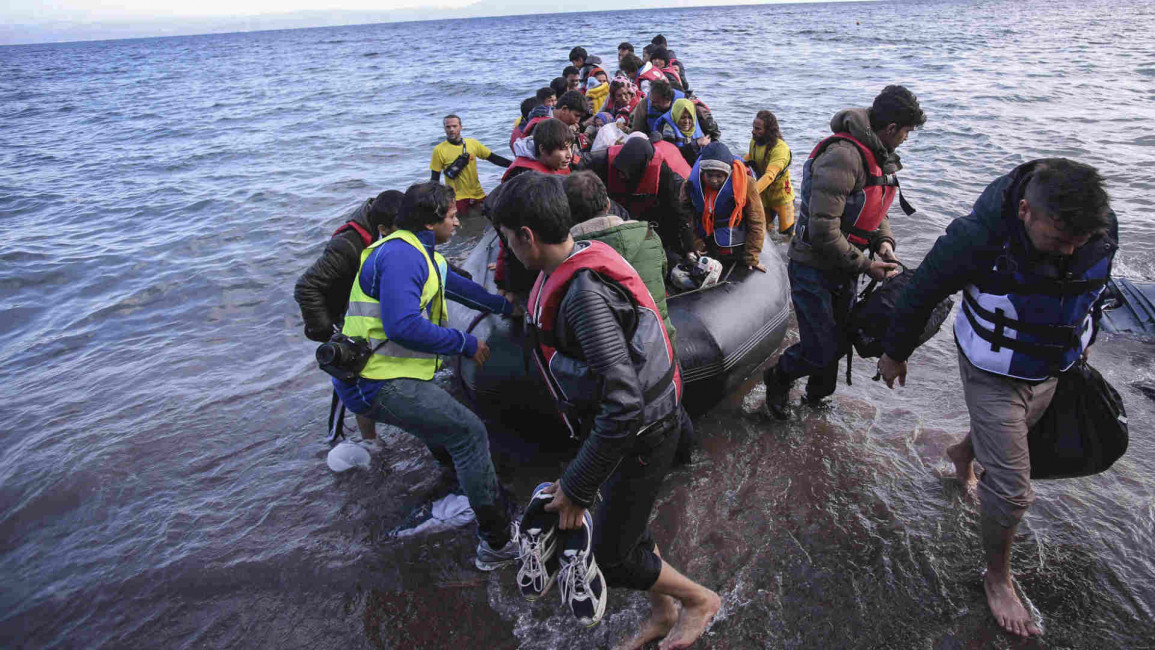Erdogan threatens to open gates of Europe to Syrian refugees if no 'safe zone' agreed
Turkish President Recep Tayyip Erdogan on Thursday warned Europe that lest Ankara receive international support for its planned "safe zone" in Syria it would be "forced to open the doors" for refugees fleeing there.
Turkey is the world's largest host of Syrians refugees, with more than 3.6 million living in the country.
But public opinion over hosting the refugees has grown more negative in recent months, with the government responding with alleged deportations to Syria's war-torn Idlib province.
Ankara hopes to turn its planned "safe zone" into a home for at least 1 million Syrian refugees, Erdogan said on Thursday.
Rather than live in "tent cities" in Turkey, the president said, Syrians can live in towns built by Ankara in the "safe zone".
Only a fifth of Syrian refugees in Turkey live in camps. Most live in urban areas such as Istanbul.
If the US- and Turkey-brokered buffer zone does not go forward as Ankara hopes, "we will be forced to open the doors", he said.
"You either give support, or if you won't, sorry, but we can only put up with so much," Erdogan said.
"Are we going to shoulder this burden alone?" he asked during the televised speech.
Turks across the political spectrum have long complained that the country has borne enough of the burden with regards to hosting Syrian refugees and criticised the West for not doing enough.
Erdogan on Thursday claimed Turkey had spent $40 billion on refugees.
Read more: Why is once refugee-friendly Turkey now turning its back on Syrians?
He also repeated claims that the European Union had failed to live up to its promises to support Turkey in hosting millions of Syrians.
Under a 2016 migration deal, the EU promised Ankara 6 billion euros ($6.6 billion) in exchange for strict controls on refugee leaving its territory for Europe.
The Turkish president says Ankara has only received 3 billion euros.
"We may be forced to do this [open the gates] to get this [international support]," he said.
Turkey also hosts hundreds of thousands of Iraqi and Afghan refugees, as well as refugees and migrants from across Asia and Africa.
In addition, Ankara fears a fresh influx of hundreds of thousands - or even millions - of refugees as the Syrian regime advances to recapture Idlib.
Around 3 to 4 million Syrians live in the northwestern province, where the regime and its Russian ally launched a ground offensive coupled with punishing airstrikes in late April.
The brutal campaign has killed 1,248 people according to to the White Helmets, and displaced at least 450,000 more.
When hundreds of Syrian demonstrators gathered at the Bab al-Hawa border post to call on Turkey to help stop the bombing in Idlib or allow them to escape to safety in the neighbouring country, Turkish border guards allegedly fired tear gas and bullets on the crowds.
The US and Turkey agreed upon implementing the so-called "safe zone" late last month.
While preparations for its implementation have begun on both sides of the border, some of the details - particularly those most pressing to Turkey, including the depth of the buffer zone and who will patrol it - are still to be ironed out.
Erdogan on Thursday said housing for refugees could be built some 30 kilometres (20 miles) deep into Syria - 10 kilometres more than the depth currently agreed upon for the "safe zone".
In a bid to pressure the US, Erdogan said Turkey was "determined to set it up by the last week of September".
"Our goal is to settle at least one million of our Syrian brothers and sisters in a safe zone along the border 450-kilometres long," he said.
He added that 350,000 Syrians had already returned to parts of the country occupied by Turkish troops during offensives against Syrian Kurdish forces and the Islamic State group in 2016 and 2018.



